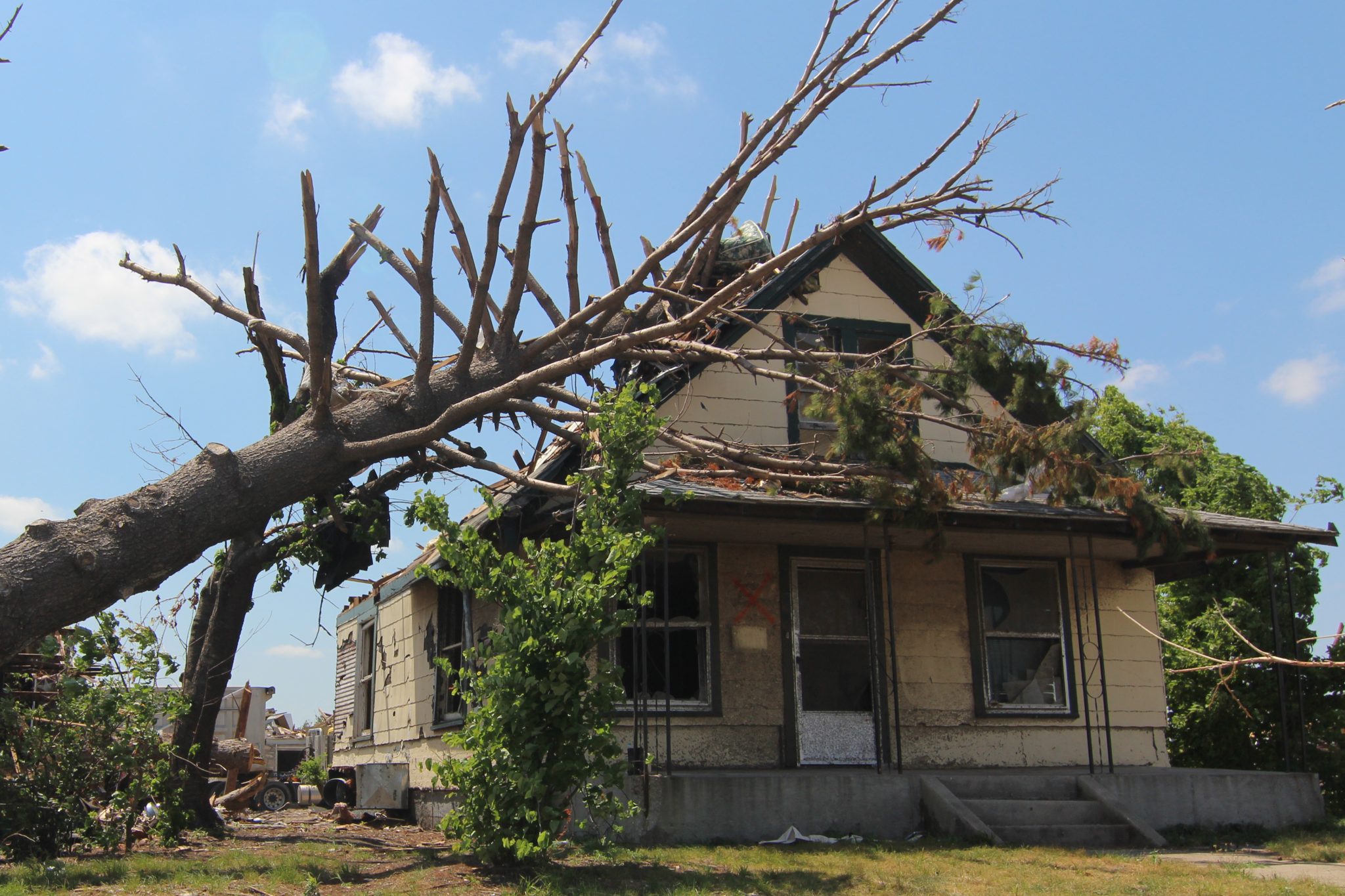Disaster

People can unfortunately experience home damage from drought, flood, fire, or storms. After a natural disaster, landlords and renters often feel overwhelmed and devastated as people must rebuild their lives and homes. For renters, housing options are often more limited than they are for homeowners. Many renters feel they are at the mercy of landlords. Alabama Extension Human Sciences team shares tips for renters dealing with the aftermath of a natural disaster, whether the dwelling was damaged or destroyed.
Read the Lease or Contract
A lease is a legally binding document. This means that any person or entities who enter into a lease must, by law, abide by the document. Most leases will outline who is responsible for damages, how to exit a lease, and the required steps in the event of damage. If you have a written lease contract, read it carefully to see if it says anything about repairs, getting out of the contract, finding another place to live, or other things that may happen if the dwelling is badly damaged or destroyed.
If There is Damage to the Unit
After a storm, and after the renter has first ensured their own safety and the safety of loved ones, there are a few things to do regarding the home, unit, or property.
- The renter should visually survey the damage done to the building structure and to their own belongings.
- Make the landlord aware of the disaster immediately, as well as any visible damage to the property.
- After the disaster, take many photos and videos of your unit or home to document its condition.
- Keep an open line of communication with the landlord. Doing so is helpful to both renter and landlord. Discussions about the property, lease, and any monies such as rent and security deposits will be necessary.
If the Unit is Suitable to Live In
- If a disaster–not caused by you–damages the property but the unit is still inhabitable, or suitable to live in, the landlord must reduce your rent proportionally. Communicate with your landlord and negotiate a rent reduction. Consult an attorney or Alabama legal aid if you need assistance.
If the Unit is Uninhabitable
If the property or unit is so badly damaged that it isn’t a safe or secure dwelling, there are a few things renters can do.
- Immediately inform the landlord that you are canceling your contract. In Alabama, if a property is uninhabitable after a disaster, tenants can let landlords know within 14 days of a disaster–in writing–that the tenant is terminating (ending) the lease and wants a security deposit refunded. By law, the landlord will have to refund the full security deposit, and renter won’t have to pay any additional rent on the property. Renters will still be responsible for any fees or past due balances that occurred before the disaster.
- Even if you do not terminate your contract within 14 days of the disaster, you may still be able to do so if the owner fails to make the necessary repairs. Landlords are required by law to maintain safe and secure housing for their renters. This means they must promptly repair things that make a unit unlivable or unsafe, such as underground plumbing problems and soundness of roofs, stability of floors, or extensive water and electrical damage or loss. If your landlord doesn’t fix such things, you might be able to legally end the lease.
- Give the landlord a written request for repairs that the lease or Alabama law says should be performed. Give the landlord 14 days to fix anything that isn’t an emergency. Keep a copy of the letter for your records. If the landlord doesn’t fix the problems, you can return the key(s) when moving out. Take pictures to show that your landlord did not do the repairs that he or she was supposed to do. Hold on to the pictures.
Legal Assistance for Renters
See the Alabama Tenants Handbook for more information about tenant rights and responsibilities https://lihca.org/alabama-tenants-handbook.
Renters can contact Alabama Legal Help at https://www.alabamalegalhelp.org, or Low Income Housing Coalition of Alabama (LIHCA) https://www.lihca.org/ for direct assistance with landlord concerns.
Renters Insurance Protections
If you do not yet have renters insurance, consider getting coverage as belongings are replaced. Unfortunately, disasters happen often. According to the National Oceanic and Atmospheric Administration (NOAA), Americans—especially those who live in coastal states—can expect natural disasters to occur frequently. While landlords are responsible for damage to property structure, renters have responsibility for their possessions, the things they own within the four walls. Renters insurance is an important consideration and opportunity to replace lost belongings in a tragedy. Many landlords require tenants to carry renters insurance. Renter’s insurance can be relatively cheap to purchase. The average cost of renters insurance is $15 to 25 per month. To shop renters’ insurance options contact an independent insurance agent who can obtain estimates from many different carriers or compare prices yourself online at internet insurance brokers sites.
Learn more about renters insurance in the Extension Brief, Six Things to Know about Renters Insurance.

